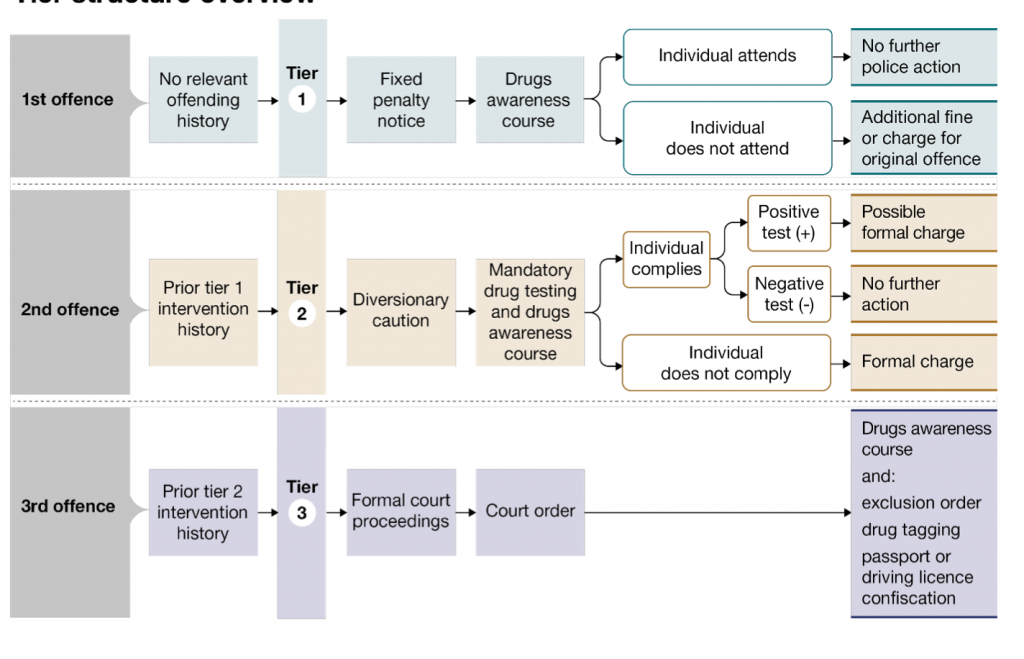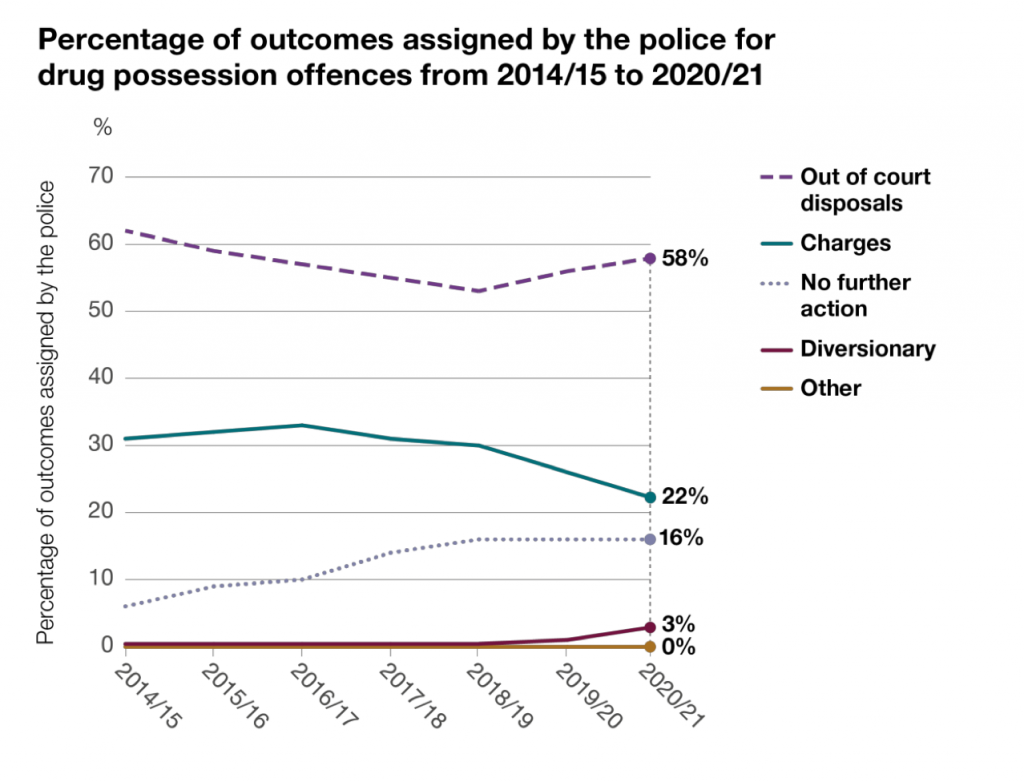Controversial plans outlined in a drugs white paper this week to curb recreational drug use have caused confusion and consternation, as a classically ‘cakeist’ white paper full of contradictions and codswallop emerges from the dying days of the Johnson government. But cut through the noise, and might there be some light as well as heat?
Under the cover of literally the hottest days ever recorded across the UK and the small matter of the contest to decide the next Conservative leader and Prime Minister, the Government on Monday published the long-awaited white paper accompanying the release of its 10 year drugs strategy last December.
Entitled ‘Swift, Certain, Tough: New consequences for drug possession’ the document’s main aim is ‘reducing demand for drugs and reversing the rising trend in drug use so that within a decade, overall use is at a historic 30-year low.’
Under the proposed plans, users of illegal drugs such as cocaine, MDMA and cannabis could be fined or forced to pay for and attend a drug awareness course – as opposed to being pursued through the criminal courts – if illicit substances are found in their possession.

The approach outlined in the paper ‘a tough, escalatory framework aimed at adults caught in possession of low levels of so-called recreational drugs.’ – clearly imported from the US – is very much in line with what was being talked about at the Home Office National Drugs Summit earlier this year.
The plans have come under fierce criticism from drug policy reform campaigners, who have labelled the proposals a ‘doubling down’ of the war on drugs. Questions have been raised about the ability of people to pay for the courses, the government seeking to make a profit from such courses, the risk to BAME communities from the hostile environment if they were to have passports and other proof of identity papers taken away, and the risk of criminalising more people than under the current system.
More than three million people in the UK aged between 16 and 59 said they consumed drugs in the year to March 2020, according to the Crime Survey for England and Wales. Over 9 out of 10 of whom did so in a way that could be described as ‘unproblematic’ i.e. they take drugs without having developed a physical and/or psychological dependency on the substance.
Introducing the white paper, Home Secretary Priti Patel said:
“Drugs are a scourge across society. They devastate lives and tear communities apart.
“Drug misuse puts lives at risk, fuels criminality and serious and violent crime and also results in the grotesque exploitation of young, vulnerable people.
“We are cracking down on drug use with tougher consequences for so-called recreational drug users who will face the consequences of their actions through sanctions including fines and conditions to attend rehabilitation courses, while drug offenders could have their passports and driving licences confiscated.
“In line with our strategy to tackle the harmful consequences of drugs, we aim to reverse the rising trend of substance use in society, to protect the public from the harm and violence of drug misuse.”
Reacting to the proposals, Jay Jackson, Head of Public Affairs at Volteface said:
“Despite the ‘tough consequences’ rhetoric and nonsensical authoritarian talk of confiscating passports, the plans announced tentatively suggest a welcome first step in the right direction.
“For first time offenders caught in possession of drugs, a criminal conviction can often have absolutely devastating consequences from which people never recover. The damage done to these people, their loved ones and wider society is completely preventable. Any approach that offers an educational intervention or deals with these issues in a civil rather than criminal context will for certain lead to improved outcomes for individuals and society – as seen in Portugal.
“We’ve had 50 years of policy failure when it comes to tackling drug-related harms and the proposed changes are, though clearly imperfect and confused, in line with a global shift in attitudes towards drugs and the harms caused by their use.”
The overwhelming reaction to the plans has been one of confusion, worthy of the document itself which is incoherent and contradictory. Framed as a ‘tough on drugs and people who use them’ intervention, whilst clearly understanding the need to deal with people who use drugs outside of a criminal context in order to best resolve the situation for the individual and society, the white paper has been described as ‘cakeist’ in the classic tradition of the outgoing Prime Minister, Boris Johnson.

The plans have been the work of the until recently Drugs minister and now Chancellor of the Duchy of Lancaster, Kit Malthouse, and Home Secretary Priti Patel. Given that one has already left post and the other is almost certain to follow when a new cabinet is formed in September, there are doubts about whether the plans will even be ever implemented, given that the new administration may want to take a fresh look at the issues at hand.
Even if the plans are favoured by an incoming administration – likely to be that of Foreign Secretary, Liz Truss with a 12 week consultation then a turbulent political autumn ahead, serious questions remain over whether these plans will really be implemented before the next election, which could be as soon as next year.
Labour have yet to comment on the plans, with the only intervention coming from Shadow Home Secretary, Yvette Cooper, who criticised the government’s record on attempting to close down so-called ‘county lines’ for not doing enough.
The plans outlined in the white paper are now subject to a 12-week period of public consultation, where anyone can give feedback on the proposals. A full response from Volteface will be submitted to the consultation and published in due course. You can submit your thoughts to the process here.
This piece was written by Jay Jackson, Head of Public Affairs at Volteface. Tweets @wordsbyjayj
